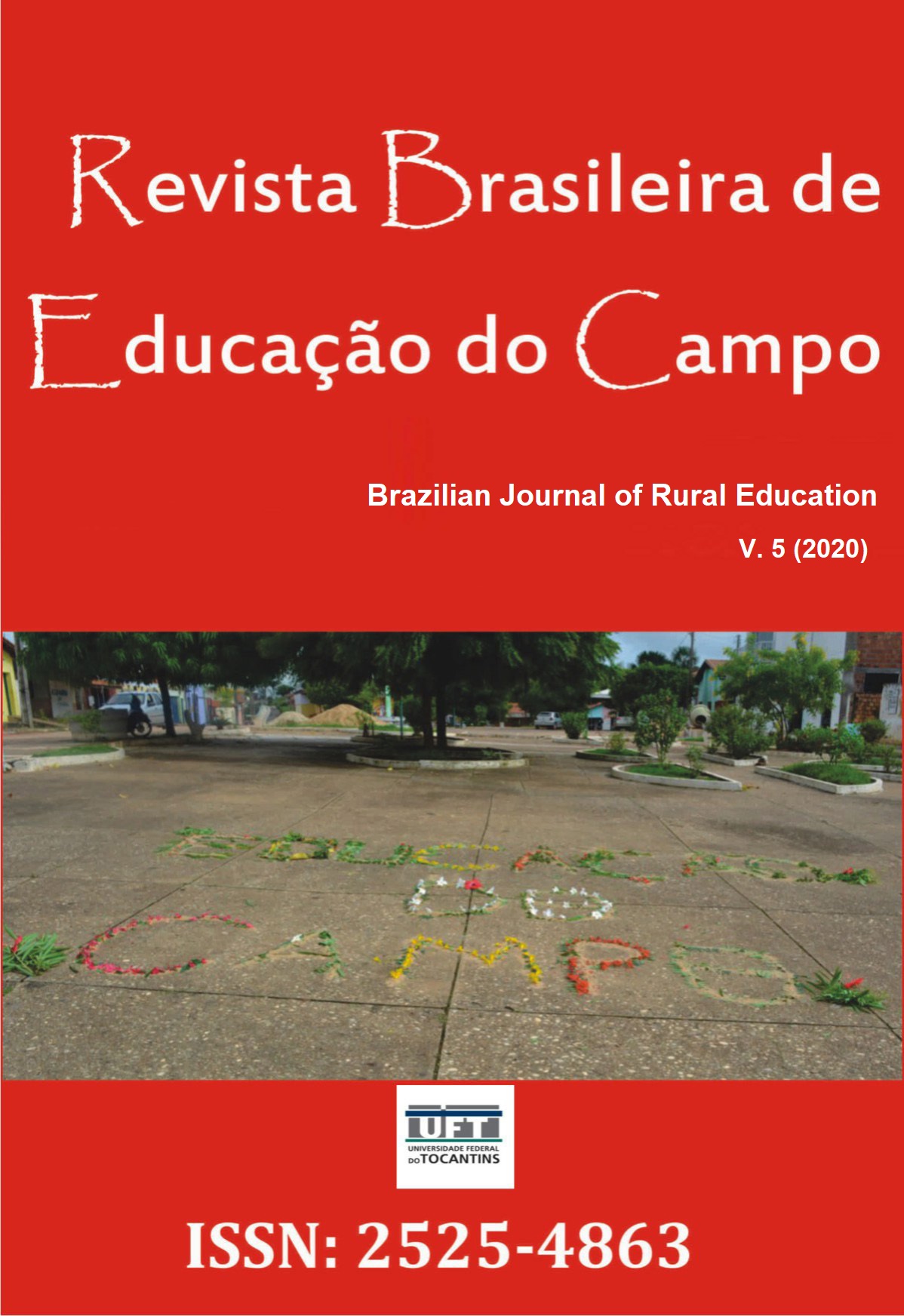Degree in Mathematics from the University of the State of Pará - UEPA and training for teaching work in the rural context of Conceição do Araguaia – PA
DOI:
https://doi.org/10.20873/uft.rbec.e9000Keywords:
Political Pedagogical Project, Degree in Mathematics, Rural ContextAbstract
Abstract
This article aimed to verify which aspects of teaching practice in the rural context are included in the Pedagogical Course Project (PPC) of the Mathematics Degree course at the State University of Pará - UEPA. To this end, a descriptive and documentary research was developed with a qualitative approach based on the analysis of the history of the legal system contained in the opinion of the National Council of Education CNE / CEB 36/2001, in the reflections of Borges (2012) on the school and teaching practice in rural context and in the proposal of D'Ambrósio's Ethnomathematics program (2019) as a methodological resource to resignify the teaching of mathematics in the rural context. The results show that the PPC of the Degree in Mathematics, UEPA works with a proposal for teacher training with the capacity for intellectual autonomy with knowledge of the socio-cultural reality of the region, which is formed by a considered portion of the rural population. The results reveal that, although the course is not specific to rural education, there are disciplines in which the teacher-educating teacher can problematize and debate the reality and challenges of education for the rural population.
Downloads
References
Borges, H. S., & Silva, H. B. (2012). Educação do Campo e a Organização do Trabalho Pedagógico. In Ghedin, E. (Org.). Educação do Campo: Epistemologia e Práticas (pp. 206-235). São Paulo, SP Cortez.
Borges, H. S. (2012). Educação do Campo como processo de luta por uma sociedade justa. In Ghedin, E. (Org.). Educação do Campo: Epistemologia e práticas (pp. 76-116). São Paulo, SP: Cortez.
Caldart, R. S. (2012). Educação do Campo. In Caldart, R. S. (Org.). Dicionário da Educação do Campo (pp. 257-267). São Paulo, SP: Escola Politécnica de Saúde Joaquim Venâncio, Expressão Popular.
Ribeiro, M. (2012). Educação Rural. In Caldart, R. S. (Org.). Dicionário da Educação do Campo (293-301). São Paulo, SP: Escola Politécnica de Saúde Joaquim Venâncio, Expressão Popular.
D’Ambrosio, U. (1996). Educação Matemática: da teoria a prática. Campinas, SP: Papirus.
Ferreira, L. (2017) A Compreensão Histórica e Folclórica Pela Cartografia Social: um estudo de caso do município de Conceição do Araguaia – Pará. RETTA- Revista de Educação Técnica e Tecnológica em Ciências Agrícolas, 8(15), 146-165.
Fiorentini, D. (2016, 30 março). Diálogos com Educadores. Espaço Pedagógico, 20(1), 217-227.
Ghedin, E. (2012). Perspectivas Sobre a Identidade do Educador do Campo. In Ghedin, E. (Org.). Educação do Campo: Epistemologia e Práticas (pp. 25-62). São Paulo, SP: Cortez.
Instituto Brasileiro de Geografia e Estatística. (2020). Censo Demográfico 2010. Pará: IBGE, Recuperado de https://cidades.ibge.gov.br/brasil/pa/conceicao-do-araguaia/panorama
Lei n. 9.394 de 20 de dezembro de 1996. (1996, 20 de dezembro). Estabelece as Diretrizes e Bases da Educação Nacional. Recuperado de: http://www.planalto.gov.br/ccivil_03/leis/l9394.htm
Parecer CNE/CEB nº 36 de 4 de dezembro de 2001 (2001, 4 de dezembro). Diretrizes Operacionais para a Educação Básica nas Escolas do Campo Parecer CEB nº 36/2001, 04 de dezembro de 2001.
Universidade do Estado do Pará. (2012). Projeto Pedagógico do Curso de Licenciatura em Matemática. Belém, PA: UEPA.
Universidade do Estado do Pará. (2017). Plano de Desenvolvimento Institucional 2017-2027. Belém, PA: UEPA.
Published
How to Cite
Issue
Section
License
Proposal for Copyright Notice Creative Commons
1. Policy Proposal to Open Access Journals
Authors who publish with this journal agree to the following terms:
A. Authors retain copyright and grant the journal right of first publication with the work simultaneously licensed under the Creative Commons Attribution License that allows sharing the work with recognition of its initial publication in this journal.
B. Authors are able to take on additional contracts separately, non-exclusive distribution of the version of the paper published in this journal (ex .: publish in institutional repository or as a book), with an acknowledgment of its initial publication in this journal.
C. Authors are permitted and encouraged to post their work online (eg .: in institutional repositories or on their website) at any point before or during the editorial process, as it can lead to productive exchanges, as well as increase the impact and the citation of published work (See the Effect of Open Access).















